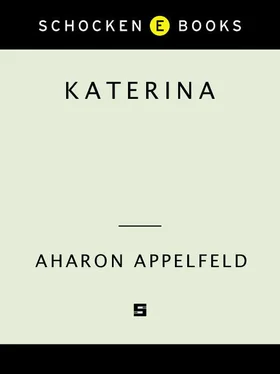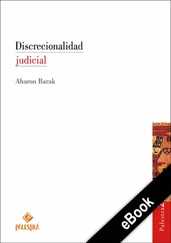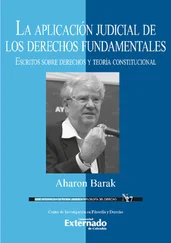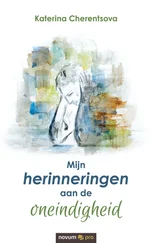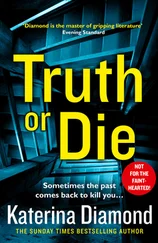Meanwhile, the woman squatted down and was speaking to the children. Her words were like nails in my flesh.
Leave them be, I wanted to shout.
“Take your belongings and let’s go,” one of the Ruthenians said to the boys.
That direct address frightened the children, and they clung closer to me.
“We want to return you to your family.”
“I want Katerina.” Meir burst into tears.
“Katerina isn’t your mother, and she’s not even your aunt.”
Now the aunt spoke to them: “You mustn’t forget that you’re Jews. Your mother is in the world of truth, and she has no peace. For two months now I’ve been dragging my legs from place to place.”
“We want Katerina,” wailed Meir again.
“You mustn’t talk that way. Your aunt has come to save you. You’re Jews. You mustn’t forget that you’re Jews.”
“Why are you talking to him? Why are you begging?” One of the Ruthenians said. “Let’s just take them.”
“Don’t take them by force.” The words left my mouth.
The Ruthenian’s patience snapped. “We do our best. But if people don’t understand, there’s no choice. What do you want, for us to beg?”
“Boys,” I said, and my voice was choked in my throat. “You decide. I don’t want to interfere.”
“We’ll stay with you,” said Abraham, who hadn’t yet uttered a word.
“What are you talking about?” the Ruthenian said to him roughly. “You have to go back. Your place is with the Jews. This woman has taken care of you, but now you’re going home. Is that clear?”
For a moment I was about to implore the Ruthenians, my countrymen, and tell them that these children were more precious than anything to me. I had brought them up, and without them my life was not worth living. But I understood that they wouldn’t give up their reward and my plea would be in vain.
All at once, the boys leaped away and began running toward the forest. Within seconds, they had disappeared. “What did you do to them?” The woman was shaken, but the two Ruthenians weren’t flustered. They ran to the top of a hill and split up. A chill went through my body at the sight of their sturdy approach. They advanced slowly, with graceful steps. At the edge of the woods, they leaped into the vegetation like wolves.
“What did you do to them?” The woman spoke to me again, gritting her teeth. “Why did they flee?”
“I don’t know. I’m not a witch.”I poured my fury into that last word. The woman apparently sensed my anger and said, “I’m their aunt. The obligation to raise them and educate them falls upon me. For two months now I’ve been dragging myself around. Why didn’t you bring them to us?”
“I was afraid.”I revealed a piece of the truth.
That single phrase took effect. The woman buried her face in her two hands and burst into weeping. I now knew very clearly that I had adopted the boys in the past two seasons. No one could sunder that tie.
Meanwhile, the woman shook off her tears: “I’ve walked on foot from village to village. Finally, the Jews had pity on me and hired the two Ruthenians so they would find the boys. I didn’t believe in them, but they knew where to look.”
I was weak, and in my great weakness I said, “The boys prayed every morning.”
“Thank you. I thank you from my heart,” the woman said distractedly. “They prayed, you say?”
“Yes.”
“Thank God, not everything is black.” The dread was shed from her face for a moment, and she added, “It’s hard to drag yourself from place to place. My legs swelled up. But there are things that are more important than your life. You must repeat that to yourself sometimes. More than once I said to myself, Let this weak body rest a little. Thank God I overcame that temptation. What did the children do all the time?”
“They played in the yard.”
“And you didn’t say anything to them?”
“What could I say?”
In my heart, I knew that the boys’ fate was sealed. Nothing escapes the wolf’s fangs, and those Ruthenians were worse than wolves. They wouldn’t leave the thicket empty-handed. But secretly, may God forgive me, I was glad of the boys’ courage. That was a sign that I had planted something of myself inside of them.
“Where are they?” The woman roused herself from her lethargy. “You know the forest.”
I overcame my repugnance and examined her closely. She was about forty, her hair was thin, and two pink creases crossed her forehead. She had once been sturdy, apparently. Now her legs were swollen and she could barely stand. “Rosa has left us,” she continued to mutter. “May her merit protect the boys. I can’t drag my legs anymore.”
Evening fell, but the sky didn’t get dark. The lights of the sunset glowed on the treetops. “Where are they? I’m their aunt. It’s my duty. Why did they run away from me? I’m not a monster.”
Don’t worry, they’ll find them, I was about to tell her, but it was unnecessary. Broken cries, stifled cries, were heard from the forest. Within seconds the shouts became choked weeping.
The Ruthenians came out of the forest, waving their prey in their hands like rabbits. “Sons of bitches.” My ear caught their words before they threw the boys into the deep bed of the wagon. The woman rose from where she lay and ran to them with a kind of clumsy haste, like someone who has learned of a disaster. The two Ruthenians stood by one of the horses and their stance bespoke a coarse satisfaction.
“Where are the boys?” the woman asked stupidly.
She climbed in on all fours and grasped the beams. The Ruthenians jumped on, and, without saying anything, they snapped their whips. The draft horses lifted their legs and were swallowed in the darkness.
I collapsed like a building beneath which the foundation has been taken away. For a long while I tried to force myself into the house, but my body was heavy and my strength had ebbed away.

8
THE FOLLOWING DAY I ROSE EARLY, packed my few belongings and, without delay, set out on my way. The autumn winds were already blowing strongly, but the sky was blue. All that had happened the day before seemed erased from my memory. My body felt as hollow as after a night of drinking.
In the afternoon it brightened up and I sat beneath a tree. A puppy attached itself to me, and I played with it. Afterward, I was of a mind to go down to the river and have a swim, but I immediately changed my mind. I rose to my feet and turned back to the high road.
As evening cast its cold shadows on the fields, I saw once again, as if onstage, the two tall Ruthenians who had come in secret and stood in the courtyard. Nor did that woman vanish from my vision, her clumsy body and her swollen legs and her repeated question, “Who taught you Yiddish?” Finally, I hadn’t been able to restrain myself and I told her, “Nothing Jewish is strange to me.” She apparently sensed my anger and asked nothing more.
That very night I sat in the Fieldmouse and sipped a few drinks. The streets were as bright as the day of my first arrival here. I was tired, and my fingers trembled. Since I’d last been there, the crowd had changed. The usual drunkards had gone and their place had been taken by new ones. While I was seeking familiar faces, I saw my cousin Maria. I hadn’t seen her for years. She was unchanged—the same brazen look, the same vigorous vitality. I hugged her to my breast, and all my humiliations rose up before me. Maria seemed to sense my loss. She held and kissed me, and right then and there she announced, “A dinner fit for a king.”
Читать дальше
